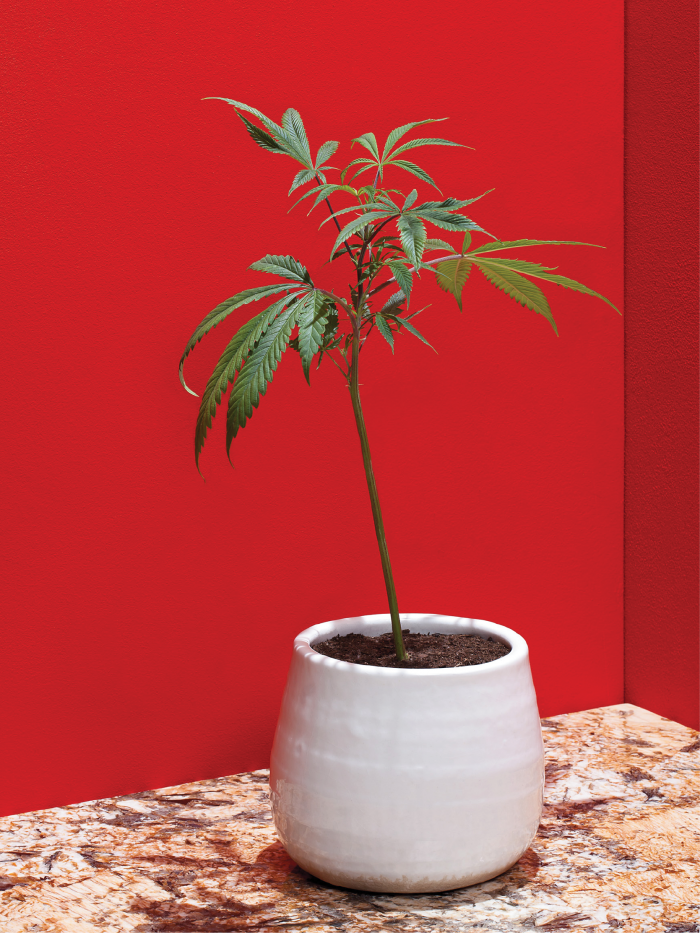You are here
Home 🌿 Recreational Marijuana News 🌿 California’s Looking for New Tax Revenue? Weed ’em and Reap 🌿California’s Looking for New Tax Revenue? Weed ’em and Reap

THE STONERS HAVE spoken: Recreational marijuana is now legal in eight states and Washington, DC. Thanks to the passage of Proposition 64, California is one of them, making it the country’s largest cannabis market—the state will start issuing sales licenses by January 1, 2018. Now, as long as the Trump administration doesn’t confiscate our stash, regulators, lawyers, and scientists have some big hazy questions to navigate, from how to keep digital tabs on up to 25,000 licensed growers to how to evaluate THC-related DUIs. Here’s a road map California and future pot-friendly states will follow as they roll toward regulation.
1. Cultivation
Backwoods farms go legit.
An estimated 50,000 marijuana growers supply California’s black market. That’s nearly six times the number of wineries in the whole country. Prop 64 lets these cultivators apply for a license, even if they have pot convictions.
Every plant will be ID’d.
How do you keep legal Humboldt Kush from ending up in North Dakota? Growers in California will be required to tag each plant and enter it into a state-operated inventory system, the largest of its kind.

2. Distribution
Middlemen may be cut out.
To shuttle plants between farms and dispensaries, California’s 2015 medical marijuana rules required the use of third-party distributors. But Prop 64 may allow growers to handle their own distribution.
Some towns can just say no.
Nearly 80 “dry” localities are currently exercising their right to outlaw recreational marijuana businesses within their borders. But it pays to be mellow: Cities that embrace weed will also profit from the tax revenues.
3. Research
Labs will measure your high.
Marijuana will be tested for potency and contaminants. According to CW Analytical Laboratories in California, over 60 percent of samples test positive for pesticides. Your brownie baker could be skimping on the magic too: Some edibles contain just half the advertised THC.
Scientists will dispel the smoke screen.
Because the federal government has largely blocked the study of marijuana, there’s still much we don’t know about the plant’s potential benefits and risks. Prop 64 will dole out $2 million for research each year. That’s a lot of really high lab mice.
4. Retail
Apps will replace credit cards.
Since marijuana is still illegal at a federal level, many banks and credit card companies won’t do business with dispensaries, resulting in a multibillion-dollar cash market. Luckily, startups like Tokken are developing smartphone payment systems.
In-store puffing will be allowed.
Previously, marijuana consumption in California was legal only in private residences—a total buzzkill. Not anymore: Now local governments can permit onsite toking at marijuana retailers and microbusinesses. But don’t expect beers and bongs: Alcohol won’t be allowed.
5. Regulation
Big Brother is watching—your weed.
California will surveil crops on a sprawling scale. That track-and-trace system could look like a pilot program launched in Humboldt County, where marijuana products feature QR codes that reveal the strain, growing technique, and THC content.
Offenders get a second chance.
Under Prop 64 roughly 6,000 inmates with cannabis convictions are eligible for reduced sentences. “This isn’t just about creating a commercial industry,” says Amanda Reiman, a professor of drug policy at UC Berkeley. “This is about repairing the harms of prohibition.”

6. Consumption
Driving while high will have consequences.
Researchers have found little correlation thus far between THC levels in the body and responsiveness, making DUIs tricky to prosecute. Prop 64 devotes $3 million per year to establishing standard protocols.
Taxes will fill state coffers.
Marijuana taxes are tricky. Too little and the state loses out. Too much and tokers turn to the black market. California’s 15 percent excise tax falls comfortably in between. Here’s the breakdown of where the revenue will go if the state’s marijuana tax makes its $1 billion estimate.

420 Intel is Your Source for Marijuana News
420 Intel Canada is your leading news source for the Canadian cannabis industry. Get the latest updates on Canadian cannabis stocks and developments on how Canada continues to be a major player in the worldwide recreational and medical cannabis industry.
420 Intel Canada is the Canadian Industry news outlet that will keep you updated on how these Canadian developments in recreational and medical marijuana will impact the country and the world. Our commitment is to bring you the most important cannabis news stories from across Canada every day of the week.
Marijuana industry news is a constant endeavor with new developments each day. For marijuana news across the True North, 420 Intel Canada promises to bring you quality, Canadian, cannabis industry news.
You can get 420 Intel news delivered directly to your inbox by signing up for our daily marijuana news, ensuring you’re always kept up to date on the ever-changing cannabis industry. To stay even better informed about marijuana legalization news follow us on Twitter, Facebook and LinkedIn.




